Understanding Sensitive Skin
Sensitive skin, a condition increasingly prevalent in today’s age, has become a major concern for many individuals. This skin type often reacts unfavorably to various products and environmental factors, leading to discomfort and a compromised skin barrier.
What Defines Sensitive Skin?
Sensitive skin can be identified by a range of characteristics and symptoms. These can range from redness, itching, burning sensations, to more severe conditions like eczema and rosacea. Some people may notice their skin reacting immediately after exposure to a triggering factor, while for others, it might take repeated exposure.
Characteristics and Symptoms to Look Out For:
- Redness and flushing
- Itching or a prickling sensation
- Dry patches and flakiness
- Swelling or puffiness
Common Triggers and Irritants: Some individuals may find their skin reacting to specific ingredients in skincare or makeup products, while others might be sensitive to environmental factors like temperature extremes or pollutants. Common irritants include:
- Harsh soaps and detergents
- Fragrance
- Alcohol in skincare and makeup
- Extreme weather conditions, such as cold or windy environments
The Connection Between Makeup and Skin Irritations
With the cosmetics industry booming, an array of makeup products is available in the market. However, not all are suited for sensitive skin types.
How Certain Makeup Ingredients Can Exacerbate Sensitivities: Certain makeup ingredients can strip the skin of its natural oils, disrupt its pH balance, or cause allergic reactions. For instance, alcohol-based products might provide a matte finish but can be overly drying.
The Role of Environmental Factors: Beyond the makeup itself, how it interacts with environmental factors can play a role in skin irritation. For example, makeup worn in humid conditions can trap sweat and bacteria, causing breakouts or further irritation.
Essential Ingredients to Avoid for Sensitive Skin
Choosing the right makeup products is crucial for those with sensitive skin. Understanding the ingredients list can be a game-changer in preventing flare-ups and maintaining healthy skin.
Harmful Chemicals and Allergens
Navigating the world of makeup ingredients can be daunting. However, knowledge is power. Being aware of certain chemicals and allergens can aid in making informed decisions.
Parabens, Sulfates, and Phthalates: Why They’re Problematic: These synthetic chemicals, often used as preservatives and foaming agents, can disrupt the skin’s natural barrier, leading to increased sensitivity and potential allergic reactions.
Common Fragrances and Dyes to Sidestep: Fragrances, while pleasant, can be a major irritant for sensitive skin. Dyes, especially those derived from coal tar, can cause reactions, including redness and itching.
Natural Ingredients That Can Still Trigger Reactions
Contrary to popular belief, natural doesn’t always mean safe, especially for sensitive skin.
Essential Oils and Botanical Extracts: Not Always Benign: Some essential oils, while beneficial for some, can be potent and cause reactions in sensitive individuals. Lavender, peppermint, and tea tree oil, for example, can sometimes cause irritation.
The Truth About Alcohol in Makeup: While alcohols like ethyl or denatured alcohol can help makeup dry faster and give a matte finish, they can also strip the skin of its natural oils, leading to dryness and potential flare-ups.
Expert-Recommended Makeup Brands for Sensitive Skin
Navigating the cosmetics aisle can be a daunting task for those with sensitive skin. Fortunately, experts have identified several brands that are tailored to meet the needs of this skin type, ensuring both beauty and skin health.
Trusted Brands and Their Key Products
In a market flooded with cosmetic brands, a few stand out due to their commitment to formulating products especially for sensitive skin. These brands prioritize ingredients that nurture the skin while minimizing potential irritants.
Reading and Interpreting Product Labels
A critical skill for anyone with sensitive skin is understanding product labels. This ensures they are investing in products that align with their skin’s needs.
Deciphering Ingredient Lists: What to Look For: It’s essential to familiarize oneself with potential irritants. Look for products free from parabens, sulfates, and synthetic fragrances. Additionally, opt for products with shorter ingredient lists – fewer ingredients often mean fewer potential irritants.
The Importance of Cruelty-Free and Hypoallergenic Labels: Brands with a cruelty-free label ensure that their products aren’t tested on animals, indicating ethical practices. Hypoallergenic products are formulated to minimize allergic reactions, making them a preferred choice for sensitive skin.
Application Tips for Sensitive Skin
How you apply your makeup is just as important as the products you choose, especially for sensitive skin. Proper application can reduce the risk of irritation and ensure a flawless finish.
Gentle Techniques to Minimize Irritation
Being gentle is the key. Vigorous application can lead to unnecessary friction, which might irritate sensitive skin.
How to Prep the Skin before Makeup Application: Always start with a clean face. Use a mild cleanser, followed by a moisturizer suited for sensitive skin. This creates a smooth canvas for makeup application.
Tools and Brushes: Best Practices for Hygiene and Gentle Application: Opt for brushes with soft bristles. Ensure they are cleaned regularly using a gentle brush cleaner to prevent bacterial buildup. When applying makeup, use soft strokes rather than dragging or pulling on the skin.
Maintaining Your Skin’s Barrier
To ensure makeup sits well and doesn’t irritate the skin, maintaining a strong skin barrier is crucial.
Importance of a Consistent Skincare Routine: A consistent routine using products formulated for sensitive skin can help strengthen the skin’s barrier. This includes regular cleansing, moisturizing, and sun protection.
Products that Complement Sensitive Skin Makeup: Opt for a gentle makeup remover to ensure all traces of makeup are gone by day’s end. Follow up with a calming toner and moisturizer. Using a weekly hydrating mask can also replenish the skin’s moisture, ensuring it remains resilient.
Real-life Testimonials: Makeup Success Stories for Sensitive Skin
The journey to finding the right makeup for sensitive skin can be challenging, but it is not without its success stories. Countless individuals have navigated the myriad of products and ingredients to discover routines that enhance their beauty without compromising skin health.
Transformations and Positive Experiences
Across the globe, many individuals with sensitive skin have found solace in expert-recommended makeup, transforming their daily beauty rituals into moments of joy rather than apprehension.
Individuals Who’ve Found the Right Products and Routines: Take, for instance, Sarah from New York, who, after years of battling with skin flare-ups, discovered a brand that catered specifically to her needs. Or Raj from India, who swears by a particular hypoallergenic foundation that doesn’t just beautify but also nourishes.
The Impact of Expert-Recommended Makeup on Daily Life: The right makeup doesn’t just enhance physical appearance—it boosts confidence, reduces anxiety about skin reactions, and allows individuals to express themselves without reservations. It’s a transformative experience that impacts various facets of daily life, from social interactions to professional confidence.
Lessons Learned and Tips Shared
Every individual’s journey to finding their ideal makeup routine comes with its own set of challenges and learnings.
Common Challenges Faced and How They Were Overcome: One of the recurring challenges faced by those with sensitive skin is deciphering product labels. Many have found success by maintaining a list of irritants and checking it against product ingredients. Others swear by patch tests, ensuring they never have a full-face reaction.
Building a Makeup Routine that Respects and Nourishes Sensitive Skin: Experts and seasoned individuals alike emphasize the importance of a simplified routine. Using fewer products reduces the chance of irritation and makes it easier to identify any problematic ingredients.
H2: Wrapping Up: Empowering Your Sensitive Skin Beauty Journey
Your journey with sensitive skin is unique, but it’s a journey that can be empowering, filled with knowledge, positive choices, and community support.
Sustainable Choices for Long-term Skin Health
Making sustainable choices is not just about the environment—it’s about ensuring long-term health and vitality for your skin.
The Benefits of Periodic Skin Detoxes: Every once in a while, it helps to give your skin a break. A skin detox—going makeup-free for a few days—allows the skin to breathe, repair, and rejuvenate. It’s a reset button, especially beneficial for sensitive skin.
The Role of a Balanced Diet and Lifestyle: What you consume plays a crucial role in skin health. A diet rich in antioxidants, omega-3 fatty acids, and vitamins can bolster skin’s defenses. Coupled with adequate sleep, hydration, and stress management, it lays the foundation for radiant, resilient skin.
Continuing Your Education on Sensitive Skin
Knowledge is power, especially when it comes to managing sensitive skin.
Upcoming Webinars, Resources, and Expert Talks to Look Forward To: Stay updated with the latest in sensitive skin care by tuning into webinars, reading new research, and listening to expert talks. Platforms like “Sensitive Skin Central” or “Derma Talks” often feature specialists discussing the latest innovations and findings.
Encouraging an Open Community Dialogue on Sensitive Skin Care: Sharing experiences, challenges, and success stories within a community can be enlightening. It fosters a sense of belonging and provides solutions one might not have considered. Online forums, social media groups, and community workshops are excellent platforms for these exchanges.
FAQS
“Say No to Rashes: 5 Expert-Recommended Makeup for Sensitive Skin” FAQs
- What causes rashes when using makeup on sensitive skin?
- Rashes can be caused by certain ingredients, preservatives, or fragrances present in makeup products. People with sensitive skin may react to these components, leading to irritation, redness, or breakouts.
- What should I look for in makeup if I have sensitive skin?
- Opt for products labeled as hypoallergenic, non-comedogenic, and fragrance-free. It’s also beneficial to choose makeup with natural or organic ingredients, as these tend to be gentler on the skin.
- Are there specific brands recommended for sensitive skin?
- Yes, many brands cater to sensitive skin needs. Some popular ones include Clinique, BareMinerals, and Almay. However, it’s crucial to read product labels and ingredient lists, as not all products from a “sensitive skin” brand may be suitable for everyone.
- Is it possible for a product that worked for me before to suddenly cause a rash?
- Absolutely. Your skin’s tolerance and reactions can change due to factors like age, hormonal fluctuations, changes in your environment, or other products you’re using. It’s always a good idea to do a patch test if you’re reintroducing a product after a long break.
- How can I do a patch test?
- Apply a small amount of the product on a discreet area, like the inside of your wrist or behind your ear. Wait 24 to 48 hours. If you don’t experience any irritation, redness, or other adverse reactions, the product is likely safe for broader use.
- Is makeup the only cause of rashes for those with sensitive skin?
- No, while makeup can be a culprit, other factors like skincare products, environmental pollutants, diet, stress, and underlying skin conditions can also cause rashes.
- How do I treat a rash caused by makeup?
- First, stop using the suspected product. Cleanse the area gently and avoid applying makeup on it until the rash subsides. If the rash persists or is severe, consult a dermatologist or healthcare professional.
- Can makeup with SPF protection cause irritation in sensitive skin?
- Some chemical sunscreens can be irritating to sensitive skin. If you have sensitive skin and need SPF protection, look for makeup with physical sunblock ingredients like zinc oxide or titanium dioxide, which tend to be less irritating.
- Do I have to compromise on makeup quality or coverage for sensitive skin?
- No, many high-quality makeup products offer excellent coverage and long-wearing benefits while being gentle on sensitive skin. It’s all about finding the right product for your skin type.
- Where can I find more information about specific ingredients that might irritate sensitive skin?
- The Environmental Working Group’s (EWG) Skin Deep Database is a great resource. You can search for specific ingredients and see their safety ratings and potential for irritation.
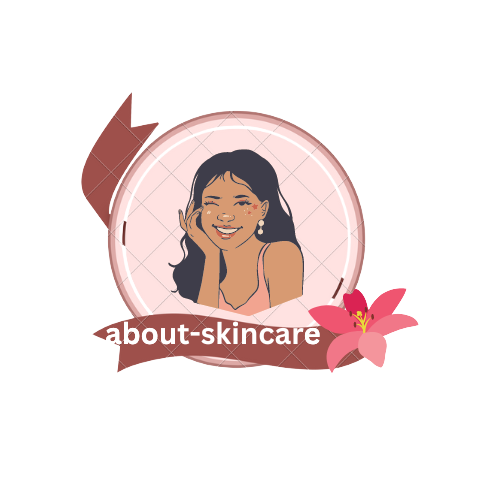
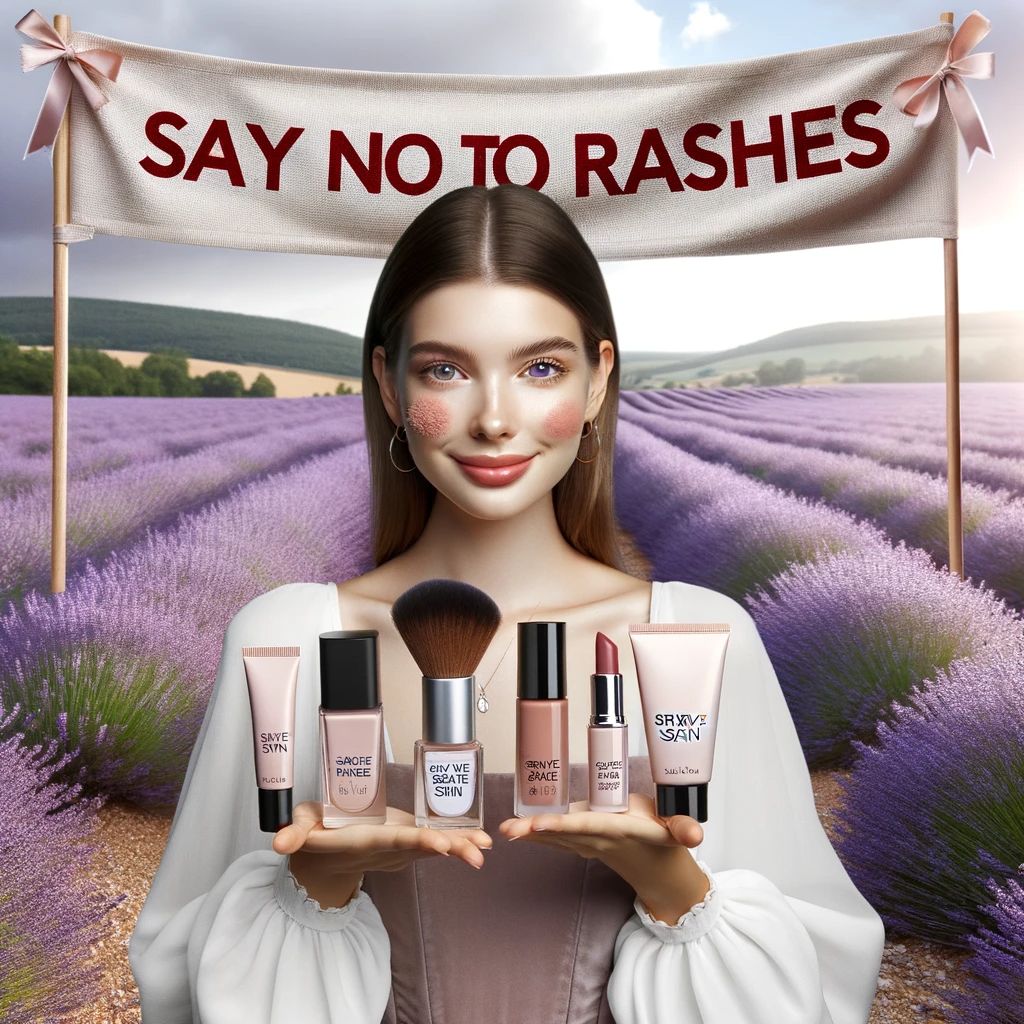
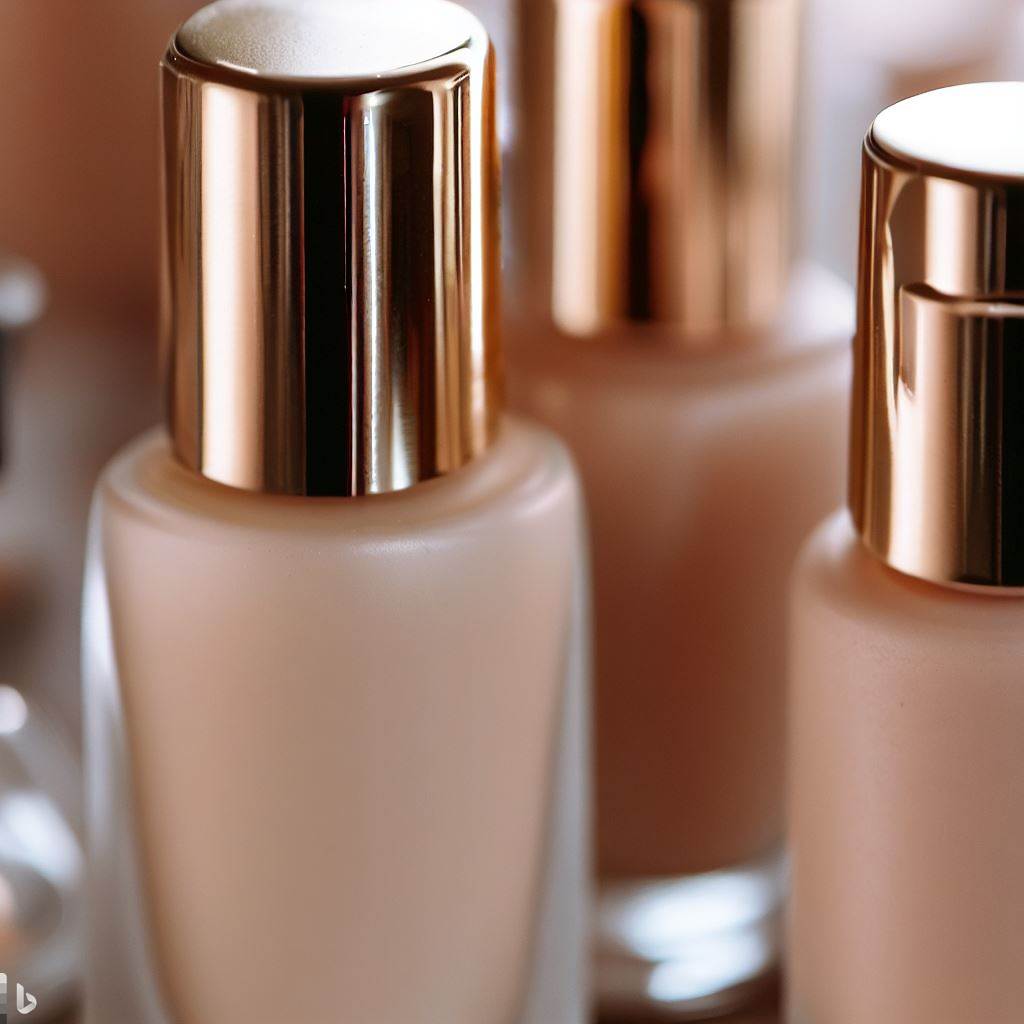
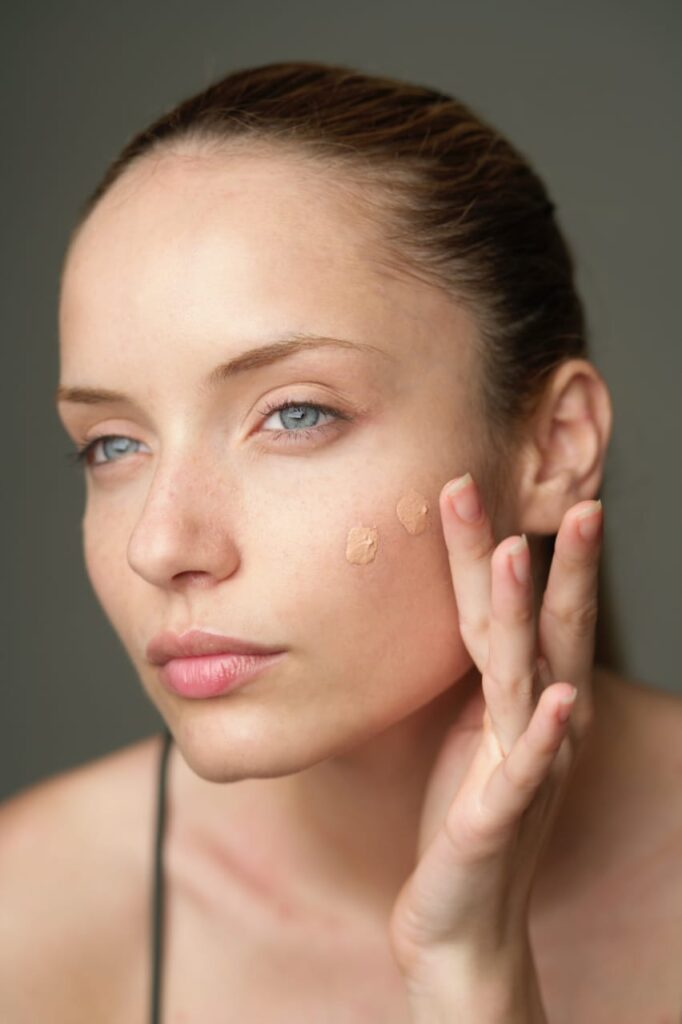
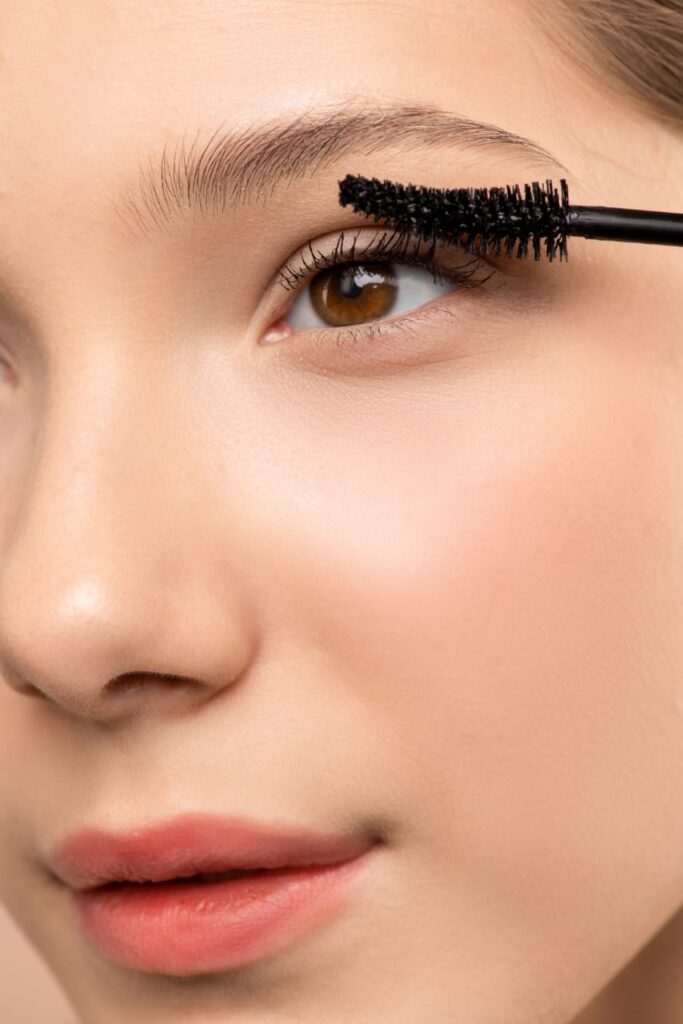
Thanks I have recently been looking for info about this subject for a while and yours is the greatest I have discovered so far However what in regards to the bottom line Are you certain in regards to the supply